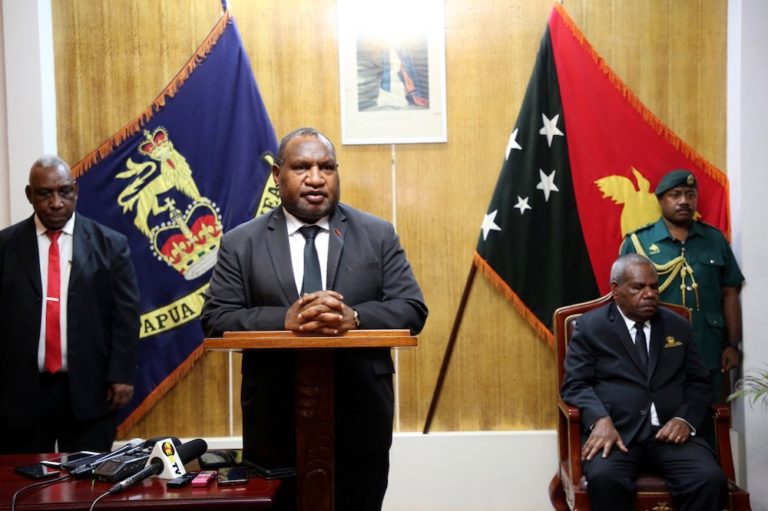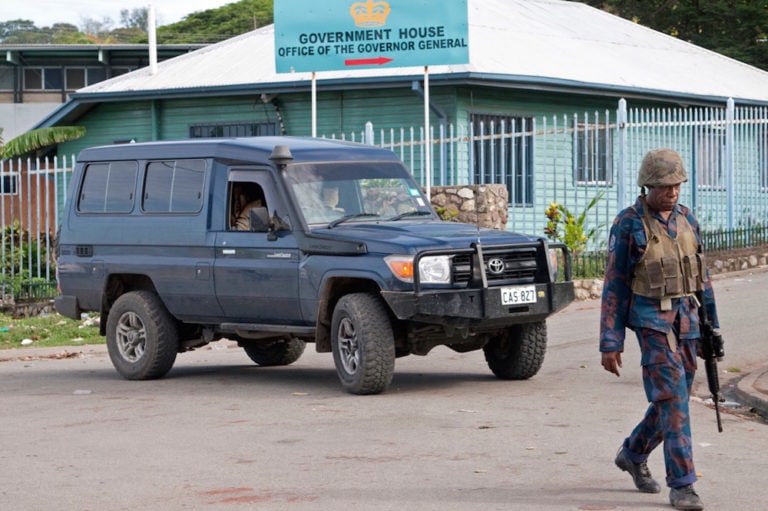PFF is calling for an investigation into the incident and is warning media workers to be vigilant about their safety and their rights.
(PFF/IFEX) – 31 January 2012, Rarotonga, Cook Islands – Journalists in Papua New Guinea must be able to report the ongoing political tensions in the country without fear or intimidation, says Pacific media monitoring watchdog the Pacific Freedom Forum, PFF.
Speaking from Port Moresby, PFF chair Titi Gabi has called for an investigation after soldiers at the Murray Barracks in Port Moresby reportedly threatened to shoot PNGFM reporter Tauna George on 26 January 2012. George, a resident at the Barracks, had rushed to the front gates to see why shots were being fired randomly on the same morning. As he approached the main office to request an interview, four soldiers ordered him to sit down, searched him, removed his phone, notebook and ballpoint pen, and threatened to shoot him.
PNG FM News Director Belinda Kora raised the issue at a press conference called by ex-army colonel Yausa Sasa the same day. Sasa was taken by surprise, apologised and ordered the return of George’s equipment.
“An investigation into the officers who took it upon themselves to threaten the life of a journalist going about his job would help them better understand how to treat civilians and media workers during times of tension and upheaval,” says Gabi. “Anyone who has a gun pulled on them and faces a threat to shoot is a victim of a criminal act, regardless of timing or who is behind the firearm.”
She says other incidents and comments from PNG journalists on social networking sites have raised the need for media workers to “be vigilant of their safety and rights, and lean on the rule of law to help them do the best job possible.”
ABC PNG stringer Firmin Nanol was also denied access to a press conference organised the same day. Benny Sandeka, a representative for the Defence Department and a former journalist, shouted at Nanol in front of her colleagues. Sandeka blamed ABC for using “coup” adjectives in reporting on some recent events.
The recent threats to PNG media come on the back of increasing incidence of self-censorship and intimidation in recent months within industry ranks. Journalists in the National Broadcasting Corporation and EMTV have noted unusual management decisions delaying or pulling news bulletins for perceived “imbalance”. In two cases, talk-back callers to an NBC live show were asked on-air if their comments were going to be for or against the O’Neill government. The troubled times for PNG newsrooms are compounded by the current leadership void for the once-strong national media watchdog, the PNG Media Council.
“We encourage our PNG colleagues to discuss and report all acts of intimidation and harassment and promptly make all concerns known to other colleagues in the media,” says PFF co-chair Monica Miller, from American Samoa. “Self-censorship often results when intimidation, threats and silence become an accepted norm amongst journalists. We need to deal strongly and consistently with this on all fronts if we want to remain credible, independent and free.”


